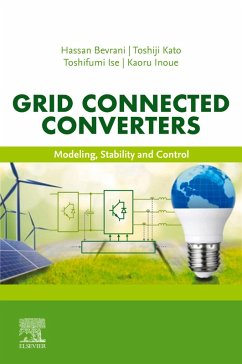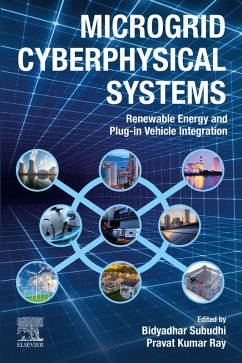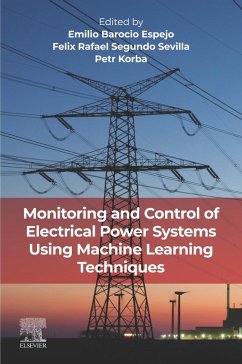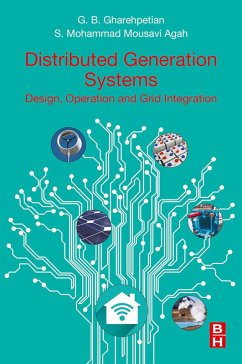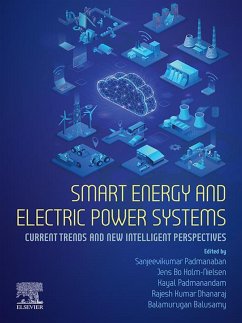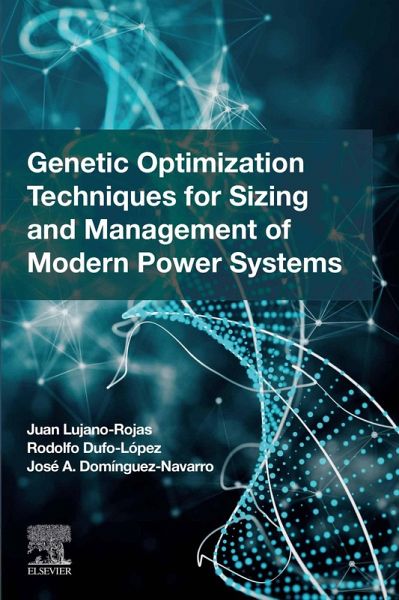
Genetic Optimization Techniques for Sizing and Management of Modern Power Systems (eBook, ePUB)
Versandkostenfrei!
Sofort per Download lieferbar
95,95 €
inkl. MwSt.
Weitere Ausgaben:

PAYBACK Punkte
48 °P sammeln!
Genetic Optimization Techniques for Sizing and Management of Modern Power Systems explores the design and management of energy systems using a genetic algorithm as the primary optimization technique. Coverage ranges across topics related to resource estimation and energy systems simulation. Chapters address the integration of distributed generation, the management of electric vehicle charging, and microgrid dimensioning for resilience enhancement with detailed discussion and solutions using parallel genetic algorithms. The work is suitable for researchers and practitioners working in power sys...
Genetic Optimization Techniques for Sizing and Management of Modern Power Systems explores the design and management of energy systems using a genetic algorithm as the primary optimization technique. Coverage ranges across topics related to resource estimation and energy systems simulation. Chapters address the integration of distributed generation, the management of electric vehicle charging, and microgrid dimensioning for resilience enhancement with detailed discussion and solutions using parallel genetic algorithms. The work is suitable for researchers and practitioners working in power systems optimization requiring information for systems planning purposes, seeking knowledge on mathematical models available for simulation and assessment, and relevant applications in energy policy. - Presents a range of essential techniques for using genetic algorithms in power system analysis, includingeconomic dispatch, forecasting, and optimal power fl ow, among other topics. - Addresses relevant optimization problems, such as neural network training and clustering analysis, usinggenetic algorithms. - Discusses clearly and straightforwardly the implementation of genetic algorithms and its combination withother heuristic techniques. - Describes the iHOGA® and MHOGA® commercial tools, which utilize genetic algorithms for designingand managing energy systems based on renewable energies.
Dieser Download kann aus rechtlichen Gründen nur mit Rechnungsadresse in A, B, BG, CY, CZ, D, DK, EW, E, FIN, F, GR, HR, H, IRL, I, LT, L, LR, M, NL, PL, P, R, S, SLO, SK ausgeliefert werden.



